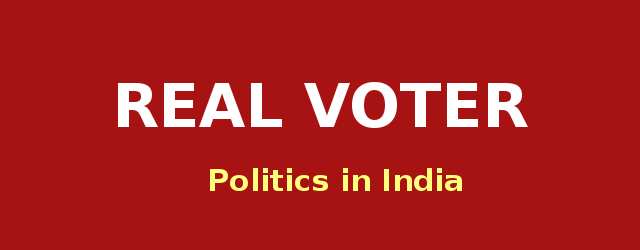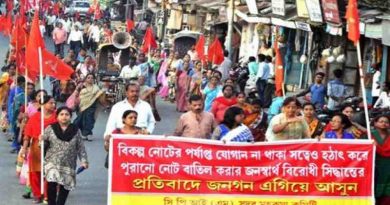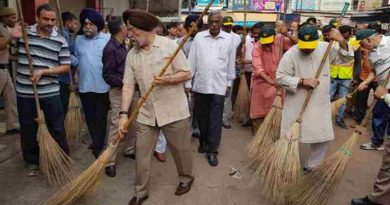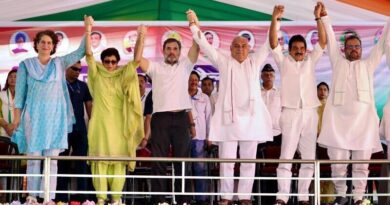Victory for AAP or Defeat for Anna Hazare?
In the dirty political arena of India, a new group called Aam Aadmi Party (AAP or Common Man’s Party) promises to provide clean governance to the people of the country. But can it live up to its promises?
By Rakesh Raman

New Delhi is not only the capital of India but it’s also the political capital of the country. It’s largely believed that the election outcomes in Delhi determine the fate of the political parties that would come at the helm in the Central government to manage the affairs of the entire country.
The local State Assembly elections were held in Delhi last week and the results were declared Sunday, Dec. 8. While the ruling Congress party and its Chief Minsiter Sheila Dikshit faced a crushing defeat in Delhi, the major opposition party, the BJP, got the maximum number of seats.
Political analysts believe that these results will have a great impact on the upcoming General / Lok Sabha elections scheduled for May 2014. And BJP’s Prime Ministerial candidate Narendra Modi is projected to become the next Prime Minister (PM) of India while defeating the Congress party.
In the process, it’s believed, Modi will also defeat his likely opponent Rahul Gandhi who is supposed to be the natural dynastic ruler in the country and belongs to the powerful Gandhi family, though Congress has not yet declared Rahul as its candidate for the PM’s position.
[ Also Read: How MMS becomes the Prime Minister ]
In the clash of the big political parties, Indian polity saw the emergence of a new alternative in the shape of Aam Aadmi Party (AAP or Common Man’s Party) led by Arvind Kejriwal, who shot to fame as the deputy of the social activist Anna Hazare in the 2011 anti-corruption movement in India.
The AAP party was formed about a year ago when the Hazare’s crusade under a civil society organization called India Against Corruption (IAC) – claimed to be on the lines of Mahatma Gandhi’s philosophy of passive resistance – failed to impress the Congress-led UPA government that was allegedly involved in a series of large-scale corruption cases.
[ Also Read: Is India’s Prime Minister Really Corrupt? ]
At that time, Kejriwal and a few others from the Hazare group decided to form a political party, thinking that civil society campaigns were not effective enough to challenge the highly corrupt political forces in India. While Hazare opposed this move, the IAC movement was split into two parts – IAC headed by Hazare and AAP led by Kejriwal.
As the things stand today when Kejriwal’s AAP has emerged as the main opposition party in Delhi, it can be said that he was right in his decision to form a political party with the promise to give a corruption-free governance to citizens.
Kejriwal also defeated the veteran Congress politician and Delhi Chief Minsiter Sheila Dikshit, sending a clear signal that voters want change and freedom from corrupt governments. Thus, AAP suddenly became a strong regional alternative at least in Delhi. That way, it was the right move for Kejriwal to break away from Hazare and plunge into active politics.
[ Also Read: 10 Simple Reasons I Love My Country India ]
Hazare’s movement was weak right from the beginning because it was playing with the emotions of commoners affected with massive government corruption without giving them any tangible relief from the blood-sucking politicians of all traditional political parties. Hazare’s noisy protests without any plan against the thick-skinned politicians didn’t work.
Obviously, Kejriwal’s decision to grab power to stand against the powerful and corrupt government was the only option left with the civil society movement. Irked by the formation of AAP, Hazare kept expressing his resentment publicly to discredit Kejriwal and his political outfit – asking them, for examle, not to use his name in their political campaigns.
But today when Kejriwal’s party has performed splendidly in the Delhi elections, Hazare must be feeling defeated, as it’s a defeat of his inaction to the action-oriented approach that Kejriwal followed for the same cause – to dethrone the corrupt forces from the Indian political system.
Now willy-nilly Hazare is expressing his satisfaction on AAP’s political performance. If Hazare accepts it as a wakeup call, he would change his stance and join hands with Kejriwal and become part of this political struggle. After all, AAP is nothing but an offshoot of the Hazare-led campaign against corruption.
While Hazare has been against politics, he must realize that there is nothing wrong with politics in a democratic system. The only thing wrong in the Indian political system is the way corrupt politicians have been using politics and running a veritable dictatorship under the garb of democracy.
Now, Kejriwal and Hazare should work together to defeat the traditional political parties in the 2014 Lok Sabha elections and give a fresh, corruption-free political alternative to 1.25 billion Indians.
If Delhi elections are any indication, voters’ mood and mandate are in their favor. They should leverage it to win the 2014 Lok Sabha elections under the AAP banner and provide a clean governance to Indians who are fed up with the traditional political parties and their selfish interests. Will they?
By Rakesh Raman, the managing editor of RMN Company.
You also can read: More Articles by the RMN Editor, Rakesh Raman





